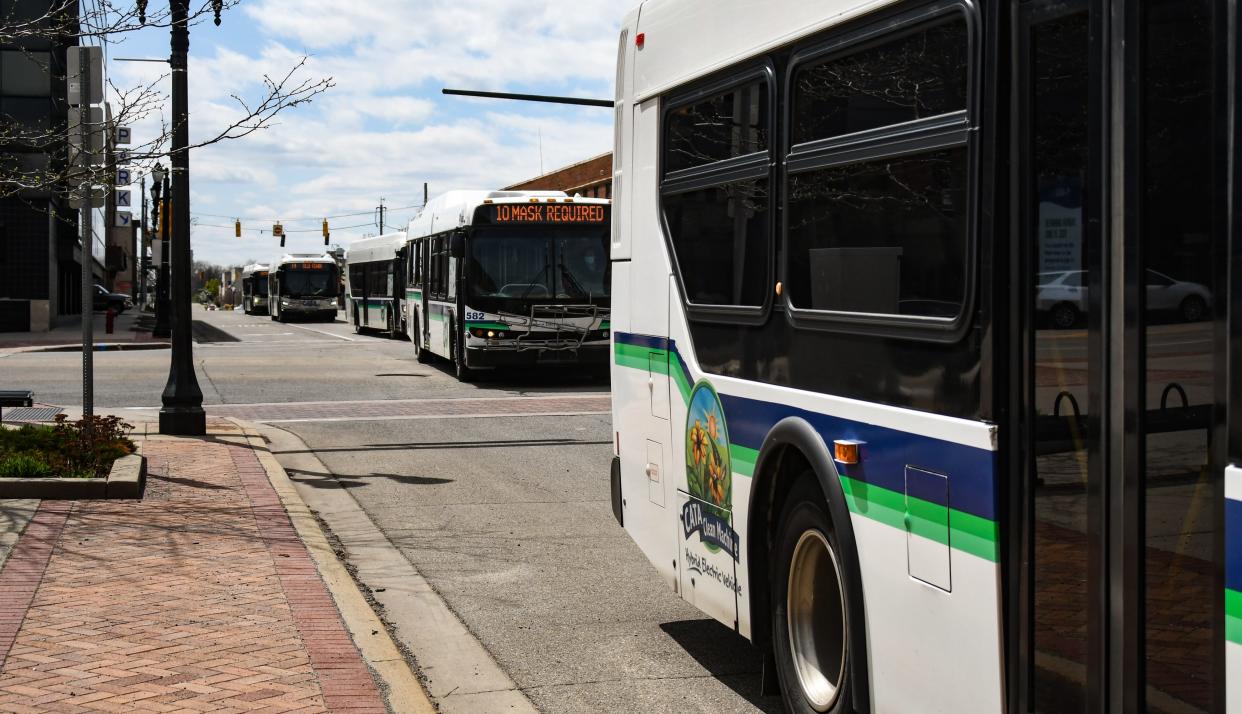CATA sees high fuel prices from inflation, but remains financially healthy

Like individual drivers across the country, the Capital Area Transportation Authority is feeling the pinch of inflation-driven fuel price increases — and spending far more so far this year to keep its fleet running.
“I wouldn’t say we’re in dire straits, it just costs more, like it costs more to go and get a jar of peanut butter or a pound of hamburger right now,” CATA CEO Bradley T. Funkhouser said. “We’re adjusting like everybody else.”
This year's monthly average cost for fuel is $216,847, a stark jump from last fiscal year’s $133,701 monthly average, according to figures provided by Chief Marketing and Public Affairs Officer Lolo Robison.
More: US gas prices continue to rise to record highs. Expect a 'cruel summer' ahead
Last fiscal year, CATA spent about $1.6 million on fuel for its 248 vehicles (split between 105 fixed-route buses, 108 paratransit buses between CATA and French company Transdev, and 35 service buses) compared to more than $1.5 million so far in 2021-22, with four months left to go.
High fuel prices also may be leading to higher ridership for CATA, which has seen numbers increase 20 to 30 percent over the past two months compared to the same period last year.
Officials say the continued recovery from longer-term pandemic decreases and returned on-campus instruction at Michigan State University this past year make it difficult to attribute increased ridership to any single reason.
2021 driver shortage: CATA reduces MSU and Lansing bus routes as classes resume
Transportation is an expensive business, and current higher ridership doesn’t offset fuel prices at a considerable scale, according to Funkhauser. He said that as a public agency, fiscal responsibility means CATA budgets to weather the ups and downs of commodities, though this fuel price crunch is a costly one.
That cost won't be passed onto the riders at this time. Funkhouser said CATA has had no discussions or plans to raise its prices, and is overall financially stable enough to weather inflation pressures.
More: Meridian Township employees could get an extra $2,000 to $3,000 to fight inflation
“We try to put a cushion in there and then bam, something like this happens,” he said. “It’s precedented. (Fuel is) a commodity.”
Contact reporter Annabel Aguiar at aaguiar@lsj.com. Follow her on Twitter @annabelaguiar.
This article originally appeared on Lansing State Journal: CATA sees more riders, higher cost during inflation-driven gas pricing

